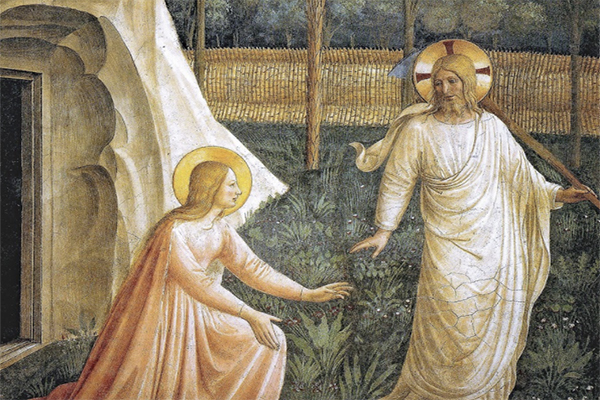
I am having a really interesting experience as I re-read sections of Robert Johann’s “Building the Human” (New York Herder and Herder, 1968, pp. 192), a book I first read about 50 years ago. Re-reading Johann’s reflections on the mystery of a person, I find him expressing views about the meaning of a person that I have come not only to embrace but to believe deeply.
Did I receive those ideas many years ago by reading Johann’s book? Did I accept them at that time? A psychiatrist once told me that every experience we have ever had is recorded in our consciousness or subconscious.
Could it be that without realizing it, over the last 50 years my mind has been tapping into what I read in Johann’s book 50 years ago? The vision of the human person that I now find in Johann’s book is identical to the philosophy of person that I have embraced over the last 50 years. Perhaps I owe a deeper debt of gratitude to Robert Johann than I previously realized. I find what Johann has written about the mystery of a person not only attractive but profoundly true.
Often in our meetings with others, we are preoccupied or distracted in some other way. I know this happens much too frequently in my life. Johann writes beautifully about what can happen when there is reciprocity between persons when we meet on a special level:
“The other is turned toward me in the uniqueness of my selfhood and I myself, undistracted by plans or projects of any kind, hold myself open and responsive to his loving interest. It is at this moment that I attain him in person, find myself precisely as a self, included in his world. It is now that I experience the other for all his otherness, as taking me into account, as enveloping and enfolding me, as giving me a share in his very life, in himself. At this moment, I am no longer alone, surrounded by people who ignore me and by things that cannot do otherwise. I am with you. I have access to you in your personhood, as a subject. And, the startling thing, it is now for the fi rst time that I truly experience myself as a person. For it is really only in your presence that I am.” (pp. 160, 161)
When people relate in the way that Johann describes, what happens seems magical or even mystical. When we place Johann’s description of a special meeting between persons into a Christian context, the mystical dimension seems more evident. Christians believe that people who are in the state of grace are temples of the Holy Spirit.
The wondrous experience of selfhood that Johann has written about takes on a new dimension. It is as though each person in grace is a living sacrament. The Holy Spirit breathes where it will! When I open myself to a person in whom the Spirit dwells, I think that I meet not only the person but the Spirit living in that person. And I hope the person meets the Spirit living in me. Interpersonal relationships take on a new meaning. They become holy.
Treating people poorly can be immoral and I think can be looked upon as a sin against the indwelling of the Spirit in the other. A sin that comes to my mind immediately is the sin of prejudice and bigotry. There is no such reality as an unimportant person. To be prejudiced against a person is to either miss or deny the deepest identity of that person, namely that the person is a temple of the Holy Spirit.
If we could treat persons as temples of the Holy Spirit, we would be building a community of love. Our relationships would mirror the heavenly kingdom. We would be expressing in our lives what we proclaim and celebrate in a Eucharist. The peace that we wish one another in a Eucharist would be evident in our lives. Also evident might be the joy that is, in Dom Abbot Marmion’s apt phrase, “the echo of God’s life within us.”
Reflecting on Johann’s description of the special blessing that can come to persons through an interpersonal relationship, I believe that God is always willing and ready to have a deep interpersonal relationship with us. God is never distracted from loving us. The God Who is Love is reaching toward us always. During the “secular sixties” there was much talk in contemporary art, perhaps especially in theatre and film, about the absence and silence of God. Though God is never absent or silent, there might be times when we are absent or deaf. The special reflection that we call prayer can help us to be more ready for God’s presence and less deaf to God’s words.
Father Lauder is a philosophy professor at St. John’s University, Jamaica. He presents two 15-minute talks from his lecture series on the Catholic Novel, every Tuesday at 9 p.m. on NET-TV.
